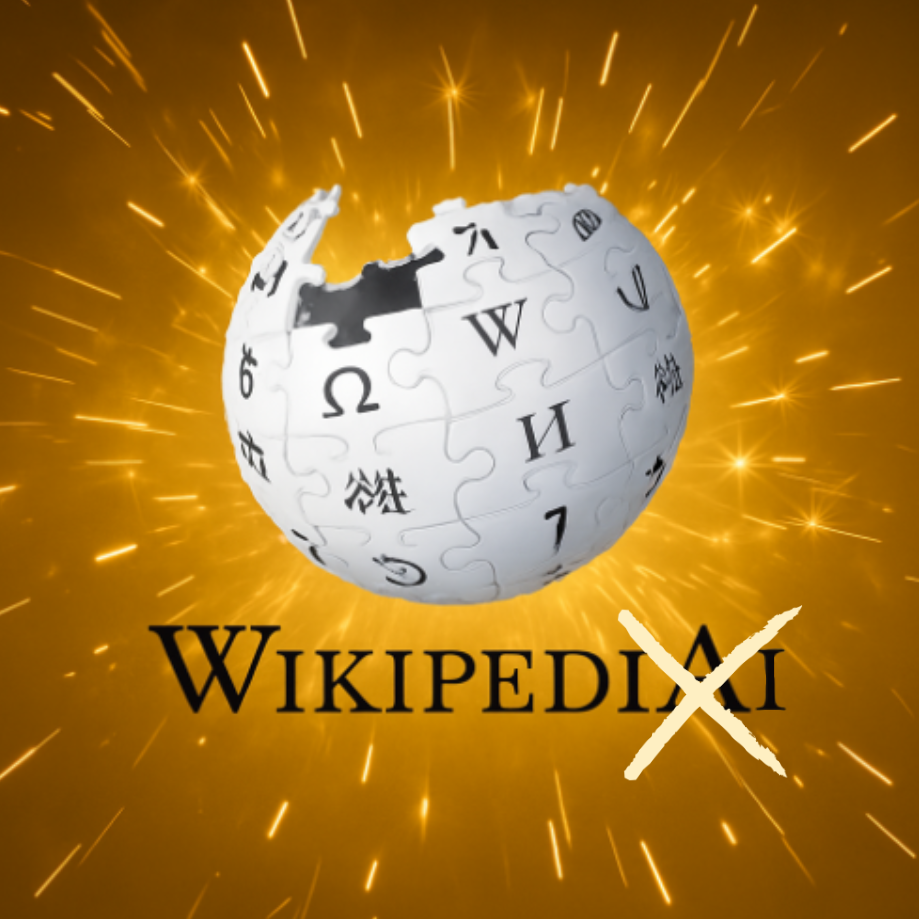Wikimedia Foundation rolled out a new AI feature: short, machine-generated article summaries at the top of Wikipedia’s mobile pages.
One day later - the editors shut it down.
Why?
They called it “immediate and irreversible harm.”
Let’s break it down.
🏢 What the Company Is Saying
The Wikimedia Foundation says the AI summaries were part of a two-week limited test meant to improve the mobile reading experience.
From their statement:
“The goal of this feature was to provide a lightweight, mobile-friendly summary that helps people get key context quickly.”
After heavy pushback, the Foundation paused the rollout and admitted it should have involved the editing community earlier:
“We’re pausing the test and plan to revisit this work with more community input moving forward.”
🧠 What That Means (In Human Words)
Wikipedia tried adding a quick AI-generated blurb at the top of mobile articles.
Think: a preview, written by a machine, above the human-written summary that already exists.
The result?
Chaos.
Editors said:
-
The AI was redundant at best, inaccurate at worst.
-
It risked damaging Wikipedia’s trust with readers.
-
And most importantly: they were not told in advance.
So they did what Wikipedia editors do:
They reversed it. Fast.
🔍 What’s New Here?
AI is showing up in a lot of places lately - search results, headlines, email previews.
Wikipedia has always been different: human-written, community-checked, deeply trusted.
This test was the first time the machine tried to lead the conversation.
And the humans said no.
📈 SEO, AI, and Why Wikipedia Might’ve Tried This
Let’s talk about the quiet part no one’s really saying out loud.
This AI summary experiment?
It might’ve had more to do with SEO than user experience.
🔍 The Shift Happening Now
Search engines like Google are starting to summarise content at the top of results - before anyone even clicks.
That means:
-
AI Overviews show first
-
Citations from Wikipedia are used, but traffic doesn’t always follow
-
The summary wins, not the source
So it’s possible Wikipedia was testing whether it could own the summary space, rather than get replaced by it.
🤖 Traditional SEO vs AI-Era SEO
|
Goal/Strategy |
Traditional SEO |
AI-Era (GEO/AEO) |
|
Optimising for… |
Human search & clicks |
AI models summarising your content |
|
Success looks like… |
Top of Google, more visits |
Being quoted in AI answers |
|
Content style |
Keywords, backlinks |
Clear, structured, summarised input |
|
Winner gets… |
Clicks & views |
Citations (maybe), less direct traffic |
|
Risk if ignored… |
Lower ranking |
Not cited by AI, invisible in answers |
🧠 So Why Would Wikipedia Care?
Wikipedia is one of the most-cited sources by AI tools like ChatGPT and Perplexity.
But citation ≠ traffic.
If AI tools start summarising Wikipedia instead of linking to it, that traffic goes poof - and with it, attention, contributions, and funding visibility.
By testing AI summaries from inside, Wikipedia may have been trying to stay relevant in a world where AI answers are replacing human exploration.
✅ Bottom Line
-
AI-generated summaries were tested for 24 hours on mobile
-
Community backlash was immediate
-
Wikimedia paused the rollout
-
Future changes will require editor input first
No AI summaries for now - and maybe not at all.
❄️ Stop the AI cult - using the power of perspective
Frozen Light Team Perspective
Wikipedia is the number one trusted source for verified information -
an empire built over years by human moderators.
But times are changing.
And Wikipedia might be the last place on the internet where humans still run the show.
This move - testing AI summaries without letting the community weigh in - broke the code.
Because this isn’t about whether the AI did a “good enough” job.
It’s about what kind of internet we want.
And how Wikipedia plans to maintain its empire
in a world where it’s starting to look like bots prefer talking to bots.
This moment is another signal of the shift we’re all living through.
And if you look closely, the pattern is clear:
Bots like bots.
Humans like humans.
No surprise there.
But how it all comes together?
Where the balance will be found?
That part - we’re still writing.
Right now, it looks like the humans have put their foot down.
But let’s be honest:
If Wikipedia doesn’t get some AI assistance, people might stop finding it altogether.
Interesting, right?
Here’s what we’re voting for:
✅ AI assistance - yes.
🚫 AI imitation - no.
🔍 Transparency - always.
Let AI write a summary, sure -
but say it out loud: “This part was written by AI.”
Then clearly mark where the human-written content begins.
Because transparency is where everything either holds - or breaks.
That’s our suggestion.
What’s yours?
Come share it in the Frozen Light community → https://www.facebook.com/groups/frozenlight








